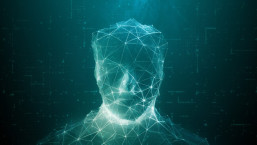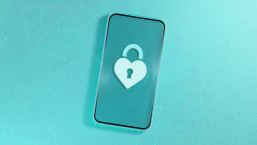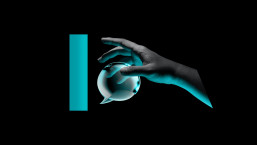If surveillance, cybersecurity, and privacy are things you think about a lot, you should find The Circle, a new movie based on Dave Eggers’ 2013 novel of the same name, interesting viewing. This is one of two recent films that reflect how central these issues have become to modern life and popular culture (the other is Fate of the Furious, which I will be writing about soon).
Set in the very near future, The Circle is a cautionary tale about our use of digital technology. At the heart of the story is a massive Silicon Valley company – The Circle – that has leveraged authentication technology to overtake and overwhelm Google and Facebook and Twitter and most other social media. Yes, you read that correctly: authentication technology.
"Read on with caution if you are spoiler-sensitive."
So how do get from something as geeky as authentication technology to an exciting sci-fi movie starring Emma Watson and Tom Hanks? In this article, I will try to explain, while avoiding spoilers. However, just as every human being seems to have their own idea of what privacy means, opinions also vary as to what constitutes a spoiler, so read on with caution if you are spoiler-sensitive.
From trailer to book to film to thesis
I got interested in The Circle after watching the trailer, so I decided to read the book before seeing the film. It was a good read, but it might have skewed my assessment of the movie, which I finally got to see this week. While Director James Ponsoldt has stayed fairly close to Eggers’ novel in many respects, it is no secret that the two works have different endings. Despite that, Ponsoldt’s version of the story makes a plausible case for the central theme of the book: the transformative power of radical transparency, a world in which everyone knows everything about everyone, a brave new reality personified by the central character, Mae, played by Emma Watson.
I don’t think it’s a spoiler to say that the storyline begins with Mae joining The Circle as a new employee who is delighted, if a little dazed, to have landed a job at the hottest company on the planet. In the interests of spoiler-avoidance I’m not going to delve much further into plot details, but I will mention some of the other key players in the drama, most notably Eamon Bailey, one of the three founders of The Circle enterprise, played in the movie by Tom Hanks.
For me, Hanks was a natural to play Eamon Bailey, a folksy CEO who is a cross between your favorite uncle and Steve Jobs (so yes, it’s a challenging role). Eamon appears to be driven by a sincere and heartfelt belief in the goodness of people and their perfectibility, if only they will embrace total transparency.
Again, I don’t think it spoils anything to know that this transparency is achieved through the adoption of progressively more revealing digital technologies that culminate in people “going fully transparent”. The technology enabling this process combines very high definition audio-visual streamed from a camera people agree to wear at all times (except bedtime and bathroom breaks), with the deployment of always-on, fully searchable, streaming video technology in all public places.
For me, what makes the plot of The Circle plausible, and The Circle itself such a plausibly successful global enterprise, is the way it leverages digital technologies that seem to have nothing but upside. Crime is down because people naturally behave better when they are being watched. Children cease to go missing because they have tracking chips in their bones. Medical diagnosis can be crowdsourced when we all livestream our vital signs. Fugitives from justice can be found anywhere in the world in under 20 minutes (using an augmented social media tool called Soul Search). Hopefully you get the idea.
In the world of The Circle, these advances are widely embraced because The Circle is such an obviously and overtly good company. After all, its first product, a radical approach to network authentication called TruYou, decisively solved so many problems in the online world.
The creator of TruYou is the third and final character that I will mention by name, Ty. One day Ty got tired of dealing with multiple internet accounts and their multiple passwords and logins and decided to do something about it, described as follows in the book (not really a spoiler because it has already occurred when the story begins):
“He put all of it, all of every user’s needs and tools, into one pot and invented TruYou – one account, one identity, one password, one payment system, per person. There were no more passwords, no multiple identities. Your devices knew who you were, and your one identity – the TruYou, unbendable and unmaskable – was the person paying, signing up, responding, viewing and reviewing, seeing and being seen. You had to use your real name, and this was tied to your credit cards, your bank, and thus paying for anything was simple. One button for the rest of your life online.” (The Circle, 2013)
Now, if you’ve just spent an afternoon paying bills online or half the evening trying to get into the website for that frequent traveler account you haven’t used for years, Ty’s vision sounds kind of appealing, right? And those are just some of the benefits. Consider this:
“Overnight, all comment boards became civil, all posters held accountable. The trolls, who had more or less overtaken the internet, were driven back into the darkness.”
That’s right, TruYou ended sock puppets and botnets spewing fake news, and I give Eggers a lot of credit for envisioning the appeal of this particular aspect of the technology, given that the novel came out in 2013, before trolling had become a household word (let alone a threat to civil discourse and Western democracy).
Radical implications
"A lot of the tension in The Circle is intellectual and I predict a lot of interesting discussions after watching the movie.'
So what’s wrong with this wonderful word that The Circle is busy creating? Where’s the dramatic tension? What happens to Mae? Will her parents ever recover from that one moment of unintended oversharing. Well, concrete answers to those questions really would be spoilers. What I can say is that a lot of the tension in The Circle is intellectual and I predict a lot of interesting discussions after watching the movie. The movie has received very mixed reviews, and this could be due, in part, to the fact that questions like “what does privacy mean to you?” elicit very mixed responses, particularly when you point out the many positive personal and social and benefits that can be derived from massive data sharing.
To prepare for those discussions, it helps to ponder Eamon’s perspective (I’d argue this is not really a spoiler since other people have made similar arguments in the past). Using a series of events involving Mae, he argues publicly, and persuasively, that keeping things to oneself in life is a form of theft. Furthermore, sharing can be seen as a form of caring and secrets are a form of lying. These “truths” are writ large in three statements:
- SECRETS ARE LIES
- SHARING IS CARING
- PRIVACY IS THEFT
I’m hoping that the movie strives to make a compelling case for these assertions, not because I necessarily agree with them, but their implications are worth thinking about as we continue to connect ever more sensors and cameras and other devices to the internet.
If you like to win post-movie arguments on points, it helps to know there are precedents for the ideas and arguments at work in The Circle. Perhaps the most complete vision of radical transparency that I’ve encountered is actually in another work of science fiction, the novel Hominids, the first book in Robert J. Sawyer’s Neanderthal Parallax trilogy. Sawyer posits a parallel society in which everything that everybody does is recorded, and everyone knows this to be the case. However, unlike The Circle scenario, nobody in Sawyer’s parallel world can access the recordings except in certain very tightly defined and mutually agreed circumstances. The net effect on society is very positive. Crime is minimal because everyone knows that their actions are recorded. Social discord is minimized because most interpersonal disagreements can be solved by viewing recordings.
One of the most extensive non-fiction works on transparency is The Transparent Society by David Brin (and yes, that’s the Brin who is better known as a science fiction writer). The sub-title of Transparent Society is Will Technology Force Us to Choose Between Privacy and Freedom?) and Brin ably articulates the double-edged nature of surveillance, as in “the watchers can be watched”. While streaming video can be used by governments (street cameras filming protestors), it can also be used by citizens (protestors recording police with their smartphone cameras). And there may be a mutually agreed middle ground, as in police body cameras.
A more obscure but nonetheless illuminating work is The Costs of Privacy: Surveillance and Reputation in America. Written by Steven Nock, a professor of sociology at the University of Virginia who was one of America’s leading experts on the role of marriage in society, this extended essay articulates the need to share information about oneself in order to fully participate in society. In this 1993 work and his 1998 article “Too Much Privacy?” Nock made the case that Americans have way more privacy today than experienced for the bulk of the country’s history. Furthermore, that additional privacy has eroded traditional bases for trust, an essential component of civil society. Personally, I would hesitate to engage in a debate about the “loss of privacy” without reference to Nock’s arguments.
So where does The Circle fit within “privacy-literature” and the filmography of dystopian digital futures? It’s not 1984 or Brazil. It’s not Enemy of the State or Minority Report. But certainly the book has elements of each of these and I for one am excited to see how the movie-going public responds to them. Does The Circle depicted in The Circle become comforting and strong, or creepy and crushing? Is it even possible to achieve universal consensus about a concept as personal and far-reaching as privacy.




